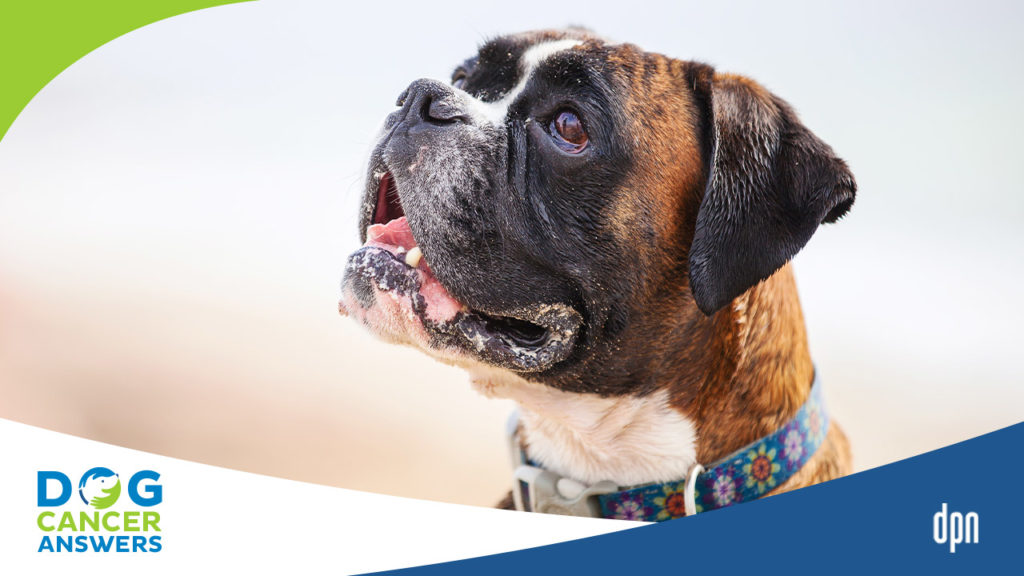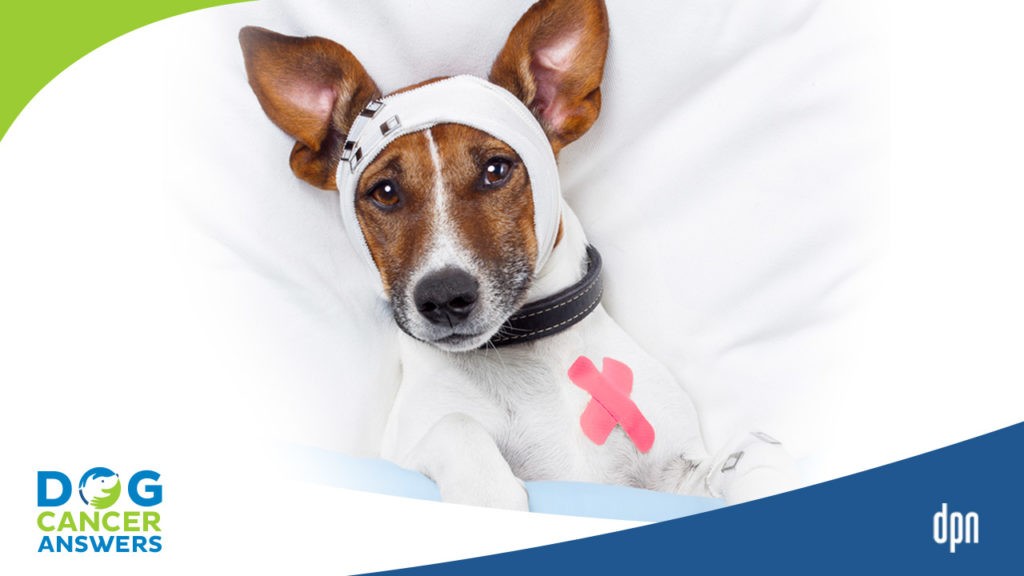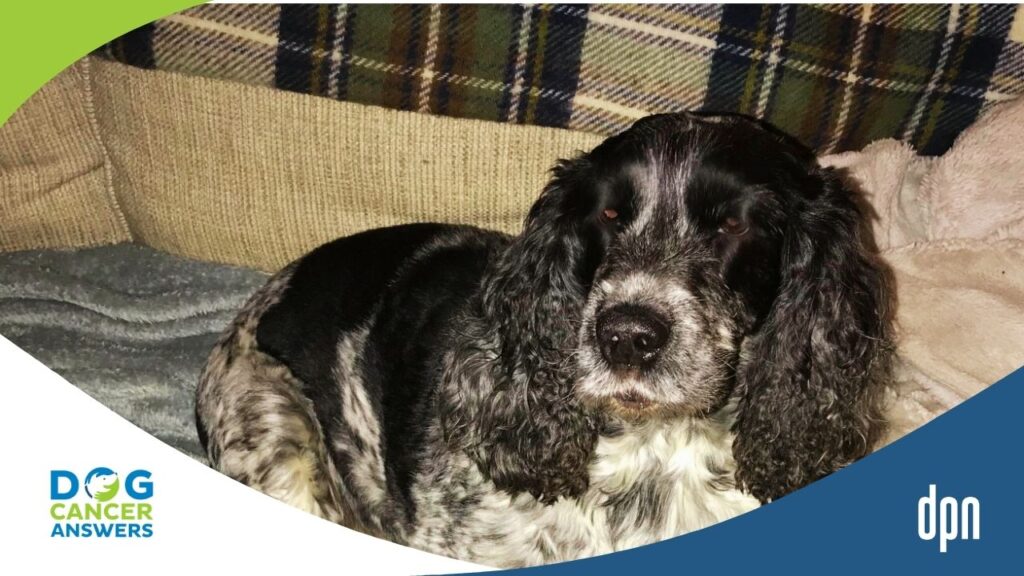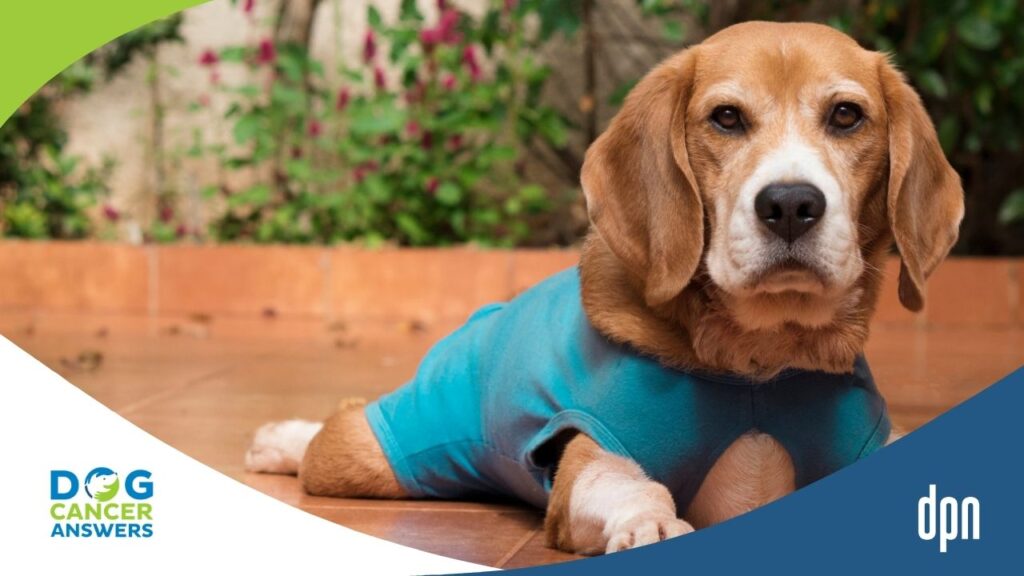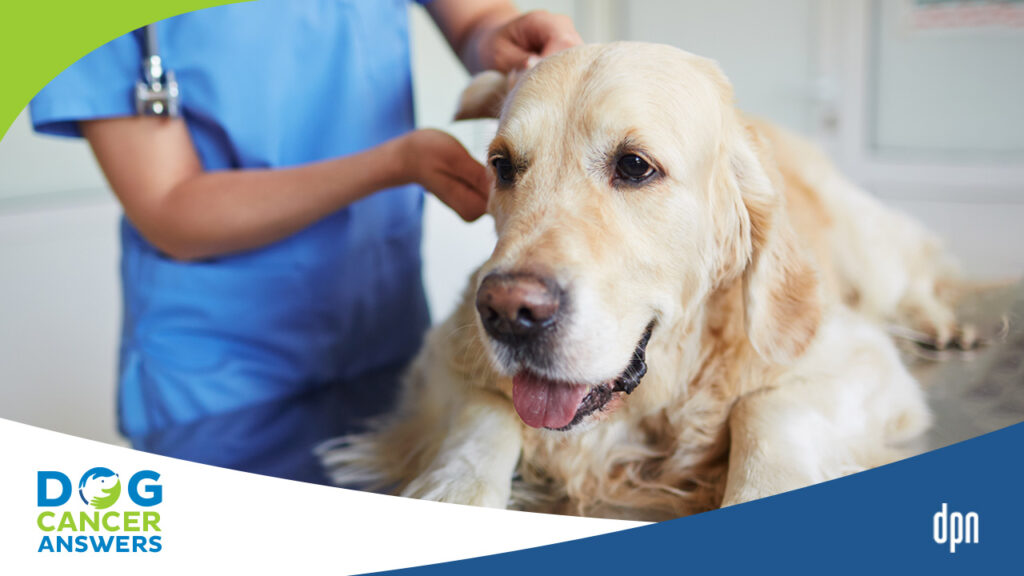EPISODE 79 | RELEASED September 18, 2020
Exam Room Series: Mast Cell Tumors │ Dr. Demian Dressler
Mast cell tumors (MCT) are one of the most common types of cancer in dogs, and they’re notoriously tricky.
SHOW NOTES
Mast cell tumors (MCT) are the most common type of cancer seen in dogs. If your dog just received an MCT diagnosis, this is your must-hear episode, as Dr. Dressler covers how tricky these weird tumors can be.
You can reach out to Dr. Demian Dressler directly on his veterinary hospital’s website: https://VetinKihei.com.
James Jacobson: James Jacobson: Today on our special Exam Room Series: Mast cell tumors and what you need to know to help your dog.
Announcer: Welcome to Dog Cancer Answers, where we help you help your dog with cancer. Here’s your host, James Jacobson.
James Jacobson: James Jacobson: Hello, friend. Let me start off by saying: I’m sorry. I am sorry that you’re listening to this podcast. Sure, I know that’s an odd thing for a host to say in a welcome message. But the fact that you’re listening to my voice now probably means that you have a dog that has been diagnosed with a mast cell tumor. I have been there and I know what it is like to have a dog who has cancer.
And I also want to let you know that you are in the absolute best place because you’re in good company. Unfortunately, cancer is the number one killer of dogs—but there is a lot of hope. Dogs do not have an expiration date stamped on their forehead. There are so many things that you can do to help your dog after you get a diagnosis of mast cell tumors.
I’m lucky. My veterinarian is Dr. Demian Dressler, author of the best selling book The Dog Cancer Survival Guide. He is a renowned authority on full spectrum approaches to treating dog cancer.
And today you can come into his exam room and listen to what he would tell one of his clients whose dog was diagnosed with a mast cell tumor.
Dr. Demian Dressler: So mast cell tumor is a very common cancer in dogs. Most commonly pops up on the skin. One of the important things with mast cell tumor to know if you have a dog, even before a diagnosis, is that mast cell cancer is called the Great Imitator. And that means that mast cells can look like a lot of different bumps when you look at them with the naked eye. Sometimes they’re red and ulcerated and sometimes they’re smooth. Sometimes they’re pink. Sometimes they’re brown or tan. Sometimes they have a shape with a broad base. Sometimes they’re shaped more like cauliflower with a thin stem. So mast cells are the Great Imitator.
Now it’s very important, well, with most cancer types, to get a diagnosis for that reason, but mast cells particularly. And it’s quite easy to diagnose mast cell cancer by putting a needle in it and sucking out some cells. And that’s called a fine needle aspirate, and most veterinarians can do it right in-house. That is, they don’t even have to send it off to a reference lab and you can get your results pretty quickly.
Now, some of the important things, I think that don’t come up in a normal discussion about mast cell tumors with veterinarians are the things that I included in the Full Spectrum Aspects of Dog Cancer Care in The Dog Cancer Survival Guide. And these are going to be things like “How do I change my dog’s diet to maintain health during this, this dog cancer journey? What sorts of supplements should I give? How can I pay attention to the immunity? How can I pay attention to cell turnover and apoptosis? How can I improve my dog’s life quality?”
All of these things are part of treatment plan, part of treatment plan analysis. But mast cell tumors specifically, I think, are overmedicated in some ways. And here’s what I mean by that.
Mast cells secrete histamine, and histamine is not good for the body. Histamine is the chemical that’s released when you have a bee sting or a mosquito bite or an allergic reaction. And it creates inflammation and it has a tendency to decrease your blood pressure if there’s a whole bunch of it. And it messes up the immune response. And what people don’t discuss much is that mast cell tumors are connected with allergies. And I discuss this in The Dog Cancer Survival Guide, what a mast cell is. Cancers come from normal body cells that have specific functions. Mast cells are part of the immune system. And in dogs that have overstimulated mast cells, those dogs are having allergies because it’s the mast cells in the body that are making the histamine that creates dogs being itchy, in being swollen or inflamed. And that’s called having an allergy: When the body encounters something that’s benign like a certain food or breathe a certain pollen or mold spore. And then you have an allergic reaction. That’s mast cells. Well, when a cancer is formed out of those exact same cells, that’s called mast cell tumors.
And what’s very interesting and I think useful is that we can take some steps to avoid allergic flare ups, we can minimize mast cell disease. This is done a lot in human medicine and humans have a disease called systemic mastocytosis. And dogs get mast cell tumors, which is a very close disease.
So I’ll discuss, many times when I discuss with clients, putting these dogs on a allergen restricted diet. So we’re trying to treat this as if it was allergies ‘Cause it’s the same cell type. So we talk about diet recipes in The Dog Cancer Survival Guide, but in person, when I’m talking to people about the best diet for dogs that have mast cell tumors, we eliminate common allergens. Those are going to be things like beef and chicken and dairy, soy, corn, wheat. These things are common dietary allergens. So we try to minimize those things because there’s a connection between allergies and mast cell tumors.
The other thing I think that’s important for people to realize is that veterinarians overmedicate mast cell tumors. What do I mean by that? Well, the first thing that you’ll do–if you look up mast cell tumor and ways to deal with the symptoms of that–well, you start prescribing Benadryl and antacids. Well, why is that? Benadryls and antihistamines. Mast cells secrete histamine. So, of course it would make sense since we don’t want very much histamine in the body ’cause it’s bad for us to do an antihistamine like Benadryl. Similarly, muscles create too much acid in the stomach as a consequence of all that histamine. And so put the dog on antacids.
Here’s the problem. The amount of histamine released from individual mast cells and from little tumors is very small. The amount of extra stomach acid that’s produced is very little when you don’t have a huge number of mast cell tumors. That’s called tumor cell burden.
And so what vets do many times, as soon as a mast cell tumor is diagnosed, we immediately put ’em on Benadryl and antacids. And wait a minute. That doesn’t make any sense at all. Because if you have a mosquito bite, you don’t go around taking Benadryl and you don’t go around putting yourself on antacids. And many times the amount of histamine that’s released from a little tiny mast cell tumor is the same thing as the amount of histamine that’s released from a mosquito bite. They’re very close. So I think that’s an important thing to realize.
It’s also really important to take mast cell tumors out with surgery. That’s important to do. You want to get rid of those tumor cells as much as you can. And The Dog Cancer Survival Guide, specifically in the portion that Dr. Sue Ettinger wrote, it talks about the grading scheme of mast cell tumors because the surgery that you’re gonna do, if you’re a veterinarian or a veterinary surgeon, is going to be dependent on how aggressive that cancer is. That’s called grading and there’s different grades of mast cell tumors from not as bad to very, very aggressive. And it’s important to have it graded so, you know, what’s going on and that’s done by a biopsy.
So these are some of the most important parts of mast cell tumors. You can read more about that in Dog Cancer Survival Guide, and I hope this was helpful.
James Jacobson: If you’d like to hear more about dog cancer and what you can do to help your dog now, I encourage you to pick up a copy of Dr. Dressler’s book, which just happens to be the sponsor of today’s episode and this entire special “Exam Room Series” here on Dog Cancer Answers. The name of this best selling book is The Dog Cancer Survival Guide: Full Spectrum Treatments to Optimize Your Dog’s Life Quality and Longevity. The authors are Dr.s Demian Dressler, who you just heard from, and Dr. Susan Ettinger, an oncologist in New York. And in a minute, I will tell you how to get their book at a discount.
This book is considered the Bible of dog cancer and it covers so much information in an easy to understand, easy to reference guide. For example, the book covers everything that you need to know about conventional veterinary treatments. That’s surgery, chemotherapy, and radiation, including how to reduce their side effects. The most effective nonconventional options, including botanical nutraceuticals, supplements, nutrition, and mind-body medicine. And the book helps you to analzye the options and develop a specific plan for your own dog, based on your dog’s type of cancer, dog’s age, your financial budget, and your time constraints, as well as your personality.
The Dog Cancer Survival Guide is available wherever fine books are sold– both online and in physical bookstores. Its available either in paperback OR as an e-book edition. And the e-book is under ten dollars. The website to get either the paperback or the ebook is: www.DogCancerBook.com.
And you will save 10% if you use the promo code “podcast” when you check out. You’ll save 10%. The website again: DogCancerBook.com. Use the promo code “podcast” for 10% off. That is www.DogCancerBook.com.
I wanna let you know that we have lots of free, helpful information on our podcast website. The URL is dogcanceranswers.com. IT’s where you can listen to or download our entire back catalog of episodes. It’s the best way to get the information that you need to optimize your dog’s life quality and longevity.
Do you have a question for a dog cancer veterinarian? Well, one of our veterinarians could answer your question on a future episode of Dog Cancer Answers. Please call our Listener Line and record your question. The telephone number is 808-868-3200. That is 808-868-3200 or visit our website at DogCancerAnswers.com.
With dog cancer, you wanna get relevant information as quickly as possible. So make sure you get the next episode of our podcast as soon as it’s released by subscribing to Dog Cancer Answers, Apple Podcasts, or your favorite podcast app. We’re also on Spotify as well as YouTube. That’s all for this episode in our Exam Room Series. I’d like to thank Dr. Demian Dressler for being our guest today.
Until next time, I’m James Jacobson. From all of us here at Dog Cancer Answers and all of us here at Dog Podcast Network, I wish all of you a warm Aloha.
Announcer: Thank you for listening to Dog Cancer Answers. If you’d like to connect, please visit our website at DogCancerAnswers.com or call our Listener Line at 808-868-3200.
And here’s a friendly reminder that you probably already know: this podcast is provided for informational and educational purposes only. It’s not meant to take the place of the advice you receive from your dog’s veterinarian. Only veterinarians who examine your dog can give you veterinary advice or diagnose your dog’s medical condition. Your reliance on the information you hear on this podcast is solely at your own risk. If your dog has a specific health problem, contact your veterinarian. Also, please keep in mind that veterinary information can change rapidly. Therefore, some information may be out of date.
Dog Cancer Answers is a presentation of Maui Media in association with Dog Podcast Network.
Hosted By
SUBSCRIBE ON YOUR FAVORITE PLATFORM
Topics
Editor's Picks
CATEGORY


